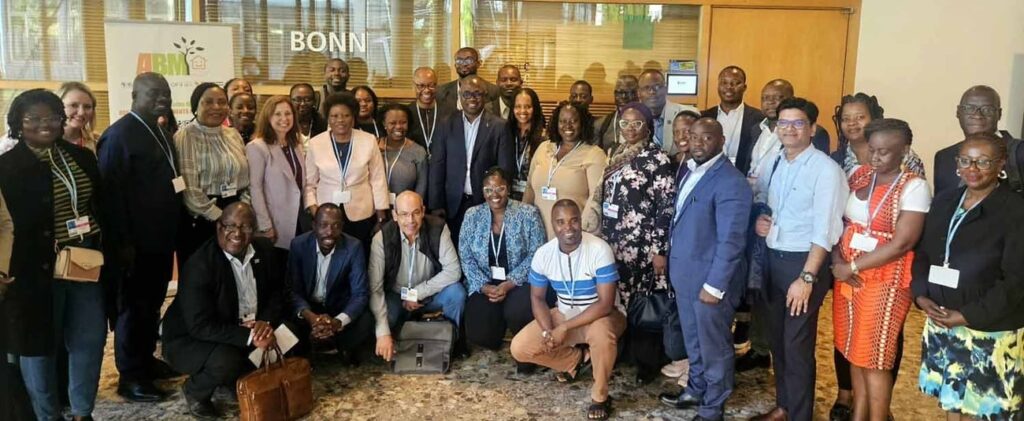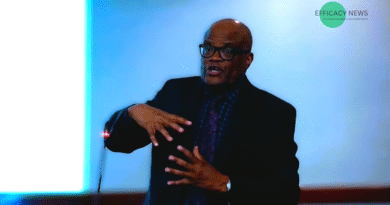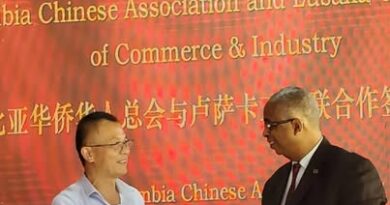Africa Pushes for Investment-Ready Climate Plans at UNFCCC SB62 Side Event
A high-level side event held during the 62nd session of the UNFCCC Subsidiary Bodies (SB62) has placed Africa’s climate financing needs and implementation ambitions in sharp focus.
Co-hosted by the African Development Bank (AfDB) and the European Bank for Reconstruction and Development (EBRD), the event titled “Making the Investment Case for African NDCs” spotlighted how African nations are preparing their next generation of Nationally Determined Contributions (NDC 3.0) to be more bankable, inclusive, and aligned with development goals.
Opening the discussion, Margaret Athieno Mwebesa, Commissioner of Uganda’s Climate Change Department, praised AfDB’s ongoing technical assistance in helping Uganda assess its current NDC. She emphasized the need to mobilize more funding: “Without investments, our NDCs are as good as useless,” she warned, citing Uganda’s less than 10% financing achievement as of 2024.
Delivering the keynote address, Prof. Anthony Nyong, AfDB’s Director for Climate Change and Green Growth, highlighted Africa’s untapped potential for climate-smart investment. “Africa does not lack ambition. What it needs is partnership, investment, and systems-level support,” he said, emphasizing the continent’s youth population, renewable energy sources, and infrastructure potential.
He also pointed to tools such as the Africa NDC Hub, Adaptation Benefits Mechanism, and Climate Action Window as key platforms driving forward climate action readiness.
Sung-Ah Kyun, Associate Director of Climate Strategy and Delivery at the EBRD, stressed the role of Multilateral Development Banks (MDBs) in supporting NDC and Long-Term Strategy (LTS) development at sectoral and subnational levels. She also highlighted the MDB LTS Program, launched at COP28, as a channel for accelerating this support.
A country dialogue segment showcased practical experiences from Ghana, Botswana, and Zimbabwe. Ghana’s Minister of State for Climate Change, Seidu Issifu, outlined the nation’s financing need of up to $15 billion by 2030 and called for greater backing in energy, transport, and agriculture investment.
Balisi Gopolang, Botswana’s Director of Climate Change, discussed improved coordination and readiness compared to their earlier INDC efforts. Meanwhile, Zimbabwe’s Lovemore Dhoba, Deputy Director for Climate Change, emphasized the inclusion of gender and youth in their newly submitted NDC 3.0.
The expert panel, moderated by Uzoamaka Nwamarah from the Commonwealth Secretariat, featured reflections from key partners. Davinah Milenge Uwella of the AfDB reiterated the Africa NDC Hub’s coordination role across 21 member organizations and its ongoing support to over 10 African countries.
Paola Ridolfi from the World Bank emphasized evidence-based planning using the Country Climate and Development Reports to unlock investment. UNDP’s Catherine Diam-Valla spoke about integrating climate commitments into national budgets and carbon markets under Climate Promise 2025, while Chiagozie Udeh of UNFPA urged for NDCs to better reflect social issues such as gender and population dynamics.
A technical presentation by Lucy Naydenova of the AfDB explained how adaptation outcomes can be monetized to attract private capital, offering a practical lens into operationalizing NDC 3.0.
Concluding the event, Prof. Nyong reaffirmed the Bank’s commitment to “working hand-in-hand with governments, MDBs, the private sector, and civil society to ensure that Africa’s climate goals are not only well-articulated but well-financed and effectively implemented.”



